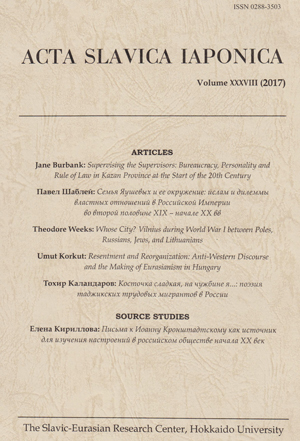Resentment and Reorganization: Anti-Western Discourse and the Making of Eurasianism in Hungary
Resentment and Reorganization: Anti-Western Discourse and the Making of Eurasianism in Hungary
Author(s): Umut KorkutSubject(s): Christian Theology and Religion, Politics, Politics and religion, Nationalism Studies, Migration Studies
Published by: Slavic Research Center
Keywords: Anti-Western Discourse; Eurasianism in Hungary;
Summary/Abstract: A pro-European but anti-Western discourse has historically characterized Hungary’s nationalist, conservative, right-wing discourse. For certain segments of the right-wing political and cultural elite, the “non-domestic” has always been the West. In its resentment towards the West, this faction’s ideology has ranged from liberalism, autonomy and partitioning, capitalism, economic and political liberalization to—most recently—federalist European integration. The rejection of such implications of Westernism or westernization has caused the right-wing elite to forge a counter-discourse to the historical understanding of the West. This segment has ideologically separated the West from Europe. Insomuch as the elite have scorned the former, they have believed that transformation of the latter is possible with the help of Hungarian national virtues. Western Christianity as a religion has occupied a crucial place in this quest. At times, this faction has emphasized Hungary as a bastion of Christianity, in contrast to the West’s tendency towards secularization. The implication is that Hungarians chose Catholicism and stood by Western Christianity despite the West’s tendency to drift from its religious foundations. More recently, this attitude has become the underlying factor in anti-immigrant policies and politics. At other times, the right-wing elite has depicted Hungarian society as the westernmost extension of Eurasian peoples—and as religious, family-oriented, and traditional.
Journal: Acta Slavica Iaponica
- Issue Year: 2017
- Issue No: 38
- Page Range: 71-90
- Page Count: 20
- Language: English

